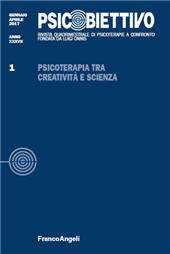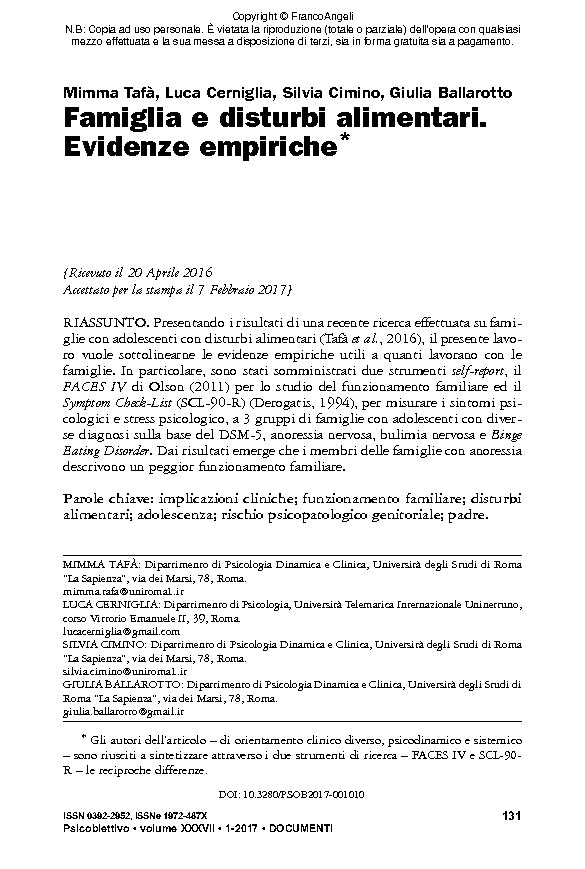Famiglia e disturbi alimentari : evidenze empiriche
131-150 p.
In this contribution, the authors present the results of a recent study conducted in families with an adolescent suffering from eating disorders (Tafà et al., 2016) to underline empirical evidence relevant to those who work with families. In particular, to three groups of families with clinical adolescents affected by Anorexia Nervosa (N=50), Bulimia Nervosa (N=50) and Binge Eating Disorder (N=50) according to DSM-5 criteria, were administered two self-report questionnaires: Family Adaptability and Cohesion Evaluation Scale (FACES IV) (Olson, 2011) to assess family functioning and Symptom Check-List (SCL-90-R) (Derogatis, 1994), to measure psychological symptoms and psychological distress. The results showed that anorexic family members describe a worst family functioning. [Publisher's Text].
-
Articoli dello stesso fascicolo (disponibili singolarmente)
-
Informazioni
Codice DOI: 10.3280/PSOB2017-001010
ISSN: 1972-487X
PAROLE CHIAVE
- Implicazioni cliniche, funzionamento familiare, disturbi alimentari, adolescenza, rischio psicopatologico genitoriale, padre
- Clinical Implications, Family Functioning, Eating Disorder, Adolescent, Parental Psychopathological Risk, Father



